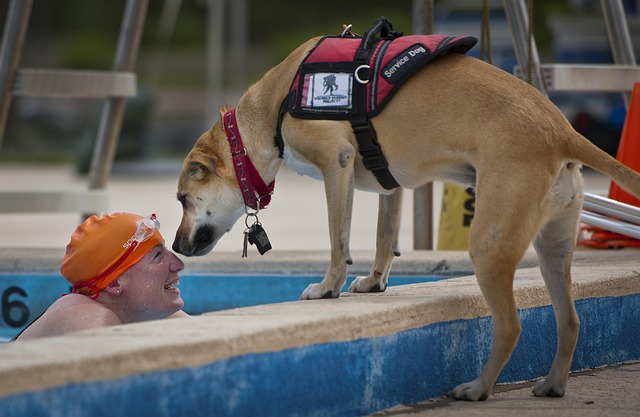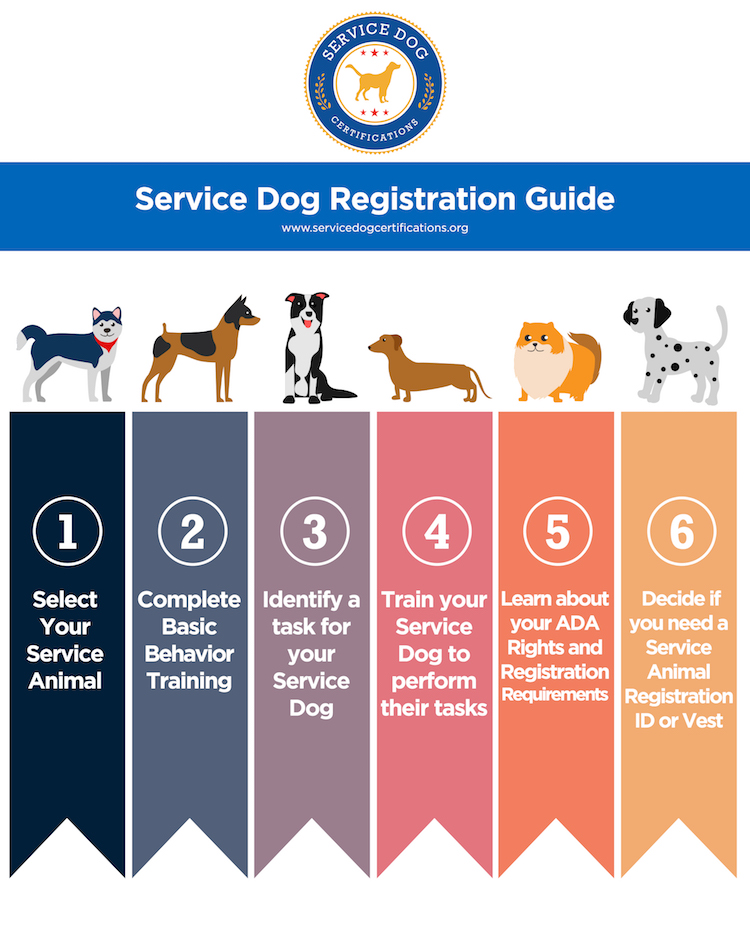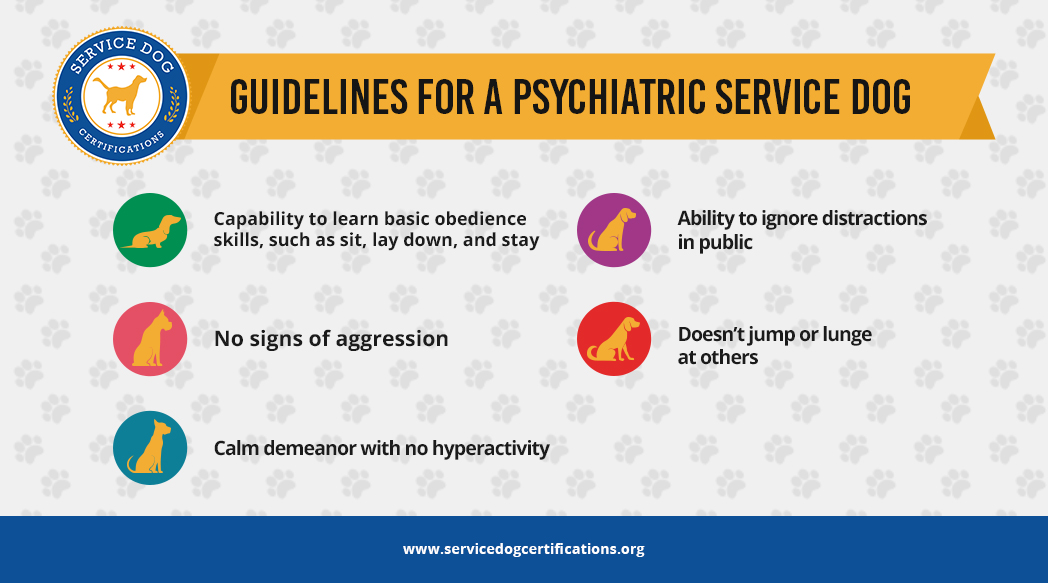Home Page › Blog › What is a Psychiatric Service Dog (PSD)?
What is a Psychiatric Service Dog (PSD)?

A person with a mental illness may struggle to accomplish daily life activities. When in need, some individuals depend on family, friends, or caretakers, while others rely on Psychiatric Service Dog. A Psychiatric Service Dog is a support for a person with a mental illness to help complete their everyday tasks.
Definition of a Psychiatric Service Dog
A Psychiatric Service Dog falls under the category of Service Animals. These are dogs or miniature horses that assist a person with a disability with tasks that directly relate to their disorder. Per Americans with Disabilities Act (ADA), a disability is a physical, medical, or mental disorder that impairs their daily activities. Originally, Service Dogs were only used for individuals with physical disabilities. As the number of other disorders grew, The ADA service dog laws conformed to the increasing numbers of people in need and began to allow Service Dogs for individuals with mental disabilities, and calling them Psychiatric Service Dogs.

Mental Illnesses a Psychiatric Service Dog can help with
To qualify for a Psychiatric Service Dog, a person must have a diagnosis of mental illness from a medical professional. Several mental illnesses qualify as a psychiatric diagnosis. Among those are:
- Generalized Anxiety Disorder
- Panic Attacks
- Obsessive-Compulsive Disorder
- Eating Disorders
- Post-Traumatic Stress Disorder (PTSD)
- Schizophrenia
- Agoraphobia
If you are interested in registering your trained psychiatric service dog, the below image is a helpful guide for service dog registration. We recommend saving this or sending it a loved one who may benefit from having a service dog.
The best breeds for Psychiatric Service Dogs
To find a Psychiatric Service Dog that fits the individual’s situation, they must look at several factors, such as breed, temperament, and trainability. Dog breeds that excel in this type of work and tend to enjoy service work are:
- Labrador Retrievers
- German Shepherds
- Border Collies
- Poodles
- Golden Retrievers
These breeds share similar traits, such as high levels of trainability, desire to please, intense focus, and generally good temperament. These characteristics go a long way in training and allow them not only to learn the tasks needed by their handler but to form a strong bond. It’s important to choose a dog that enjoys working on specific tasks—if a dog struggles to learn new skills, or appears to be in distress while training, they may not be a good fit for service work.
Dogs with desirable working traits enjoy their responsibilities as Psychiatric Service Dog and will serve their handlers best.

Tasks a Psychiatric Service Dog provides
Once a handler identifies their ideal Psychiatric Service Dog, they need to think about what the dog can do to assist them. Each disability has different factors that impact an individual’s daily life. The goal with a PSD is to discover what they can do to help ease or even eliminate the handler’s undesirable symptoms. What a Psychiatric Service Dog needs to do depends on their handler’s demands, which again depends on their mental illness. Here are some examples based on different mental disorders:
- Fetching medication for a person with depression who is unable to leave their bed
- Accompanying a person who has agoraphobia to go outside
- Detecting a panic attack and providing physical comfort until it subsides
- Fetching a phone for a person with anxiety so they can reach out for help
- Providing physical stimulation for a person with obsessive-compulsive disorder to distract them from their rituals
- Waking up a person with post-traumatic stress disorder who is experiencing nightmares or night terrors
A Psychiatric Service Dog to fit
Thousands of individuals nationwide benefit from the assistance of a PSD. As everyone’s needs are different, each Service Dog is trained to complete distinct tasks that benefit their handlers. Continuous, honest communication with the therapist can help to determine what symptoms need extra support. And that insight will dictate what their Psychiatric Service Dog can do to help live their lives independently, safely, and as fulfilling as possible.
About the Author: The writing team at Service Dog Certifications is made up of folks who really know their stuff when it comes to disability laws and assistance animals. Many of our writers and editors have service dogs themselves and share insights from their own experiences. All of us have a passion for disability rights and animals.
1 comment
Leave a Reply Cancel reply
Latest Posts

Ohio Service Dog Requirements
You can bring a service dog almost anywhere where pets aren’t allowed in Ohio as long as you meet all the necessary requirements. The rights of service dog handlers in the Buckeye State are covered under federal and state laws. This guide will walk you through Ohio’s legal requirements for service dogs. Ohio Health Requirements […]

Read More

How to Bring a Service Dog to Disneyland
Trained service dogs are more than welcome to join their handlers at Disneyland. In this guide, we’ll explain Disneyland’s policies and give practical advice for bringing a service dog to Disneyland for the first time. Disneyland’s Service Dog Policies The Magic Kingdom is happy to welcome trained service dogs across most park locations! They kindly […]

Read More

Can Dogs Eat Tomatoes?
Yes! Dogs can safely enjoy tomatoes, but there are a few risks to be aware of so you can feed your dog responsibly. Fully ripe tomatoes (without the stems and leaves) can actually have nutrients that are good for your pup. Tomatoes have chlorogenic acid, an antioxidant that can have anti-inflammatory effects in cells. They’re […]

Read More










How/where do I go to get my dog tested?